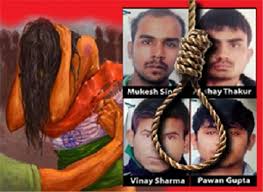Latest News
Supreme Court Dismisses Review Petitions Of Nirbhaya Convicts, Upholds Death Penalty

The Supreme Court had in the Nirbhaya case, in May, 2017 refused to attach any weight to the defence objections of delay in filing of FIR, non-mentioning of assailants’ names in the FIR, credibility of the testimony of the informant or the alleged tampering of the CCTV footage. The submission regarding non-compliance with the provisions of sections 235(2) and 354(3) of CrPC also had not influenced the judgment.
The apex court had declined to take into consideration mitigating factors such as young age, poor and rural background, family circumstances, lack of criminal antecedents and good conduct in prison of the convicts to commute the death sentence to life imprisonment, and stated that, “the crime shocks the collective conscience of the society. The present case clearly comes within the category of ‘rarest of rare case’ where the question of any other punishment is ‘unquestionably foreclosed’. If at all there is a case warranting award of death sentence, it is the present case.”
Following which, convict Mukesh Kumar filed a review petition filed challenging the impugned judgment on the ground that he has been falsely implicated and has taken a plea of alibi, assuring that he was not present at the crime scene at the time of the unfortunate incident on 16th December, 2012. Review petitions on behalf of the other 3 convicts were also allowed by the Supreme Court.
However, the review petitions filed by death row convicts in the Nirbhaya gangrape case have been dismissed and the death penalty awarded to them has been upheld by a Three-Judge Bench comprising Chief Justice Dipak Misra and Justices R Banumati and Ashok Bhushan.
“there is no error apparent upon the face of the record”, said the bench.



































































































